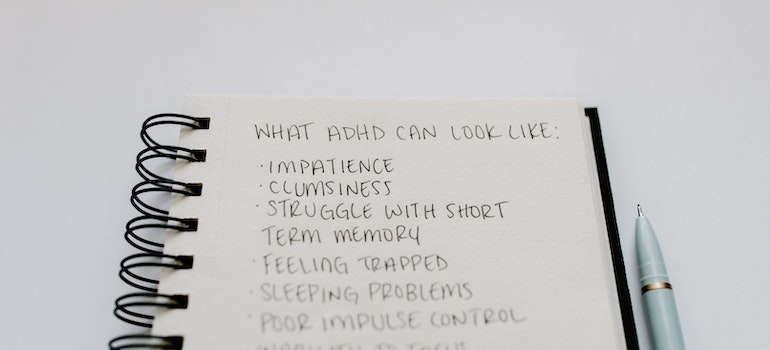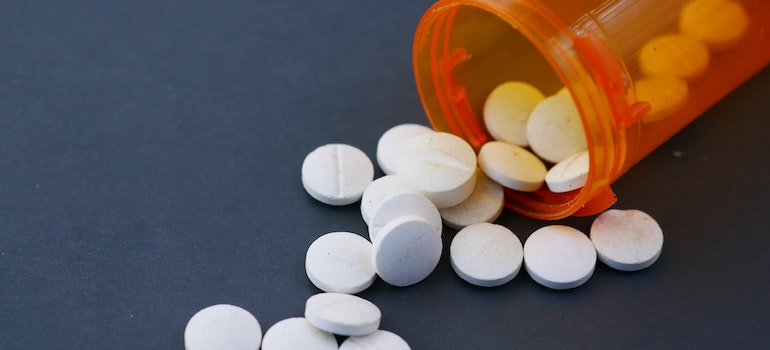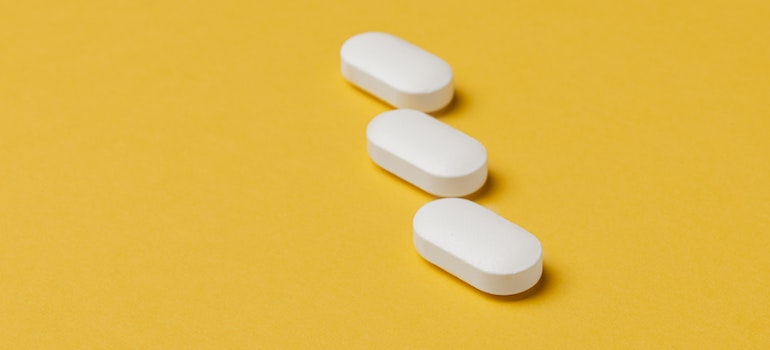Exploring the Link Between ADHD and Addiction
Get Help Now
Attention deficit hyperactivity disorder (ADHD) is a fairly common neurodivergence that is nonetheless commonly misunderstood. Although it wasn’t formally recognized as a diagnosed disorder until the 1960s, it was first observed in the early days of psychology during the 1900s. And yet, after over a century, we are still learning about how ADHD impacts people’s lives. One thing that has become increasingly clear over the recent decades is that there is a link between ADHD and addiction, even though it’s not a one-to-one correlation. But why are people with ADHD more likely to end up at a mental health and addiction treatment center Lantana FL? How does substance abuse affect ADHD brains? And can ADHD change the way people achieve and maintain sobriety? When more than a million American adults suffer from co-occurring ADHD and substance abuse, these are important questions to explore.
ADHD – everything you need to know
Attention deficit hyperactivity disorder, or ADHD, is a neurodevelopmental condition typically diagnosed in childhood. It was first identified by a British pediatrician in 1902. He associated it with a lack of self-control in otherwise intelligent children. During the following decades, psychologists continued to observe similar symptoms in children and even experimented with giving them medication to manage those symptoms. However, it wasn’t until the second Diagnostic and Statistical Manual of Mental Disorders (DSM) was published in 1968 that an official diagnosis was established – hyperkinetic reaction of childhood. The name was changed first to attention deficit disorder (ADD) in 1980 and finally to attention deficit hyperactivity disorder (ADHD) in 1987.

Throughout the history of ADHD, our understanding of it has grown exponentially. Today, we know that it does not just affect children – adults may also experience symptoms and receive the diagnosis. We have learned more about the symptoms of ADHD and how they may present differently in different people. We have even developed ways to treat ADHD using therapy and medication (Adderall and Ritalin). However, we still don’t know for sure what causes ADHD. A genetic component has been established – you are more likely to have ADHD if one or both of your parents do; other factors like brain injury, exposure to toxins in utero or in childhood, and premature birth may contribute.
Symptoms of ADHD
The primary symptoms of ADHD are inattentiveness, impulsivity, and hyperactivity. However, different people may exhibit these symptoms in different ways and to different degrees. For this reason, ADHD is associated with a wide variety of behaviors that may reflect inattentiveness, impulsivity, and hyperactivity. People with ADHD may, for example:
- struggle with controlling focus (not being able to focus, focusing on the wrong thing, focus shifting between multiple things, focusing for too long at the expense of other activities, losing focus quickly)
- have a low attention span and be easily distracted
- suffer from an inability to start or finish tasks (also known as executive dysfunction), especially when those tasks are not interesting to them
- struggle with doing everyday things they find boring without outside pressures
- fidget, shift their gaze, and perform stimulating behaviors (repetitive movements or sounds)
- talk or move faster than the average person
- have poor emotional regulation and experience mood swings, especially struggling to control anger or frustration
- suffer from time blindness and poor time management
- be disorganized, messy, and frequently late
- appear lazy due to procrastination
- make decisions impulsively and often recklessly
- get easily bored with routines and require novelty and frequent change in everyday life
- be sensitive to certain sounds, smells, or textures and become overstimulated easily
ADHD can present as inattentive, hyperactive/impulsive, or combined, depending on the specific constellation of symptoms that a person experiences. Reckless behavior and risk-taking are typical of the hyperactive and combined types, so people with these diagnoses may be more likely to need alcohol rehab Lantana due to trying and consequently becoming addicted to substances. Nevertheless, there is not yet enough research about the ways different types of ADHD correlate with addiction to draw any hard and fast conclusions.
Treatment for ADHD
There is no test for ADHD. Instead, getting a diagnosis is a process. So if you suspect that you may have ADHD, you should expect your assessment to primarily consist of conversations with a psychologist or psychiatrist. This, of course, takes time – in part because there’s a lot of overlap between ADHD and other mental disorders (specifically autism, anxiety, depression, OCD, bipolar, and BPD) and even an expert will need time to decide what diagnosis fits you best. Once you have a diagnosis, you may try to mitigate your symptoms through prescription stimulants – Ritalin and Adderall. Ritalin is the brand name of methylphenidate while Adderall incorporates amphetamine and dextroamphetamine. These stimulants have similar effects to some illegal drugs, specifically meth. So a part of the link between ADHD and addiction may come from the fact that stimulants help ADHD brains function better.

This may be due to a dopamine deficiency that people with ADHD suffer from. Multiple studies have shown a link between a low level of dopamine and ADHD (although the connection may be a correlation rather than causation). Dopamine is a neurotransmitter and hormone that the brain produces; it helps us feel pleasure and satisfaction, particularly as a reward. As such, it plays a role in motivation and drive: a person with normal dopamine levels may, for example, do things they don’t enjoy for the reward that is waiting for them on the other end of the task. People with ADHD don’t experience the same high from the reward; consequently, they will have less motivation to do things that aren’t satisfying in and of themselves. Stimulants like Ritalin and Adderall increase dopamine levels in the brain and as such help the chemical imbalance in ADHD brains.
Quick facts and stats
There’s already plenty of data regarding ADHD and more studies are being done every day. Unfortunately, it is not uncommon to (dis)miss the signs of ADHD so some of the information we have today is an estimate rather than a proven fact. Still, we can say that:
- 2.8-4.4% of the world’s adult population suffers from ADHD
- in the US, children are more likely to have a diagnosis than adults: almost 10% of Americans between the ages of 12 and 17 have a diagnosis but only 1% of adults
- teens (12-17) account for the largest portion of new diagnoses
- boys are twice as likely to receive a diagnosis, but the actual prevalence of the condition in different genders is likely far more equal
- Black and white children are more likely to have a diagnosis than children of Hispanic or Asian descent
- the majority (75%) of children with ADHD receive treatment for it
- ADHD in adults is greatly underdiagnosed because, for a long time, it was thought only children could suffer from the disorder
- in recent years, the number of adult ADHD diagnoses has been on the rise and has, in fact, doubled in the US in the last decade
- even among adults, men are more likely to receive the diagnosis (albeit only 1.5 times more so)
- ADHD has high rates of comorbidity with other mental disorders
- two-thirds of children with ADHD have at least one other condition (most commonly learning disabilities, anxiety, depression, and autism)
- up to half of adults with ADHD (primarily women with ADHD) also suffer from bipolar disorder
- up to half of adults with ADHD also suffer from depression
- half of adults with ADHD also suffer from some type of anxiety disorder
- more than half of adults with ADHD also suffer from some type of personality disorder
The link between ADHD and addiction in numbers
ADHD is overrepresented among those who abuse substances. This connection is evident early on – 22% of children without ADHD will start to experiment with substances during their teenage years compared to 40% of children with ADHD. The rates of substance and especially alcohol use even out in early adulthood, but people with ADHD are more likely to drink and use drugs excessively. ADHD in children and teens may, therefore, be a strong predictor for future substance use problems. And indeed, 50% of adults with ADHD but only 25% of the general population will experience addiction at some point in their life. Among adults, ADHD is 5 to 10 times more common in alcoholics and 3 times more common in addicts in general than it is in the general population. In total, around 25% of people in addiction treatment suffer from ADHD. This accounts for between 1 and 3 million Americans.

Why is there a link between ADHD and addiction?
Addiction is a complex condition that is influenced by genetics, personality, and environment. Typically, all three play a role in why, when, and how someone starts abusing substances. ADHD, on the other hand, is most likely genetic but since research has yet to confirm its cause, we cannot say with 100% certainty that other factors don’t affect it. Consequently, it is difficult to pinpoint exactly where the connection between the two occurs. But we can still identify certain overlapping risk factors.
Genetics vs. environment
Children of addicts are more likely to become addicts themselves. This happens because addiction has a genetic component – about 40-60% of the reason you develop substance use disorder is in your DNA. We can see something similar with ADHD. Children of people with ADHD are more likely to receive the diagnosis themselves. This is our biggest hint as to why some people have ADHD and others don’t – it may be genetic. Since there is significant overlap between ADHD and substance abuse, a genetic component may affect both.
However, the environment also plays a role in both addiction and ADHD. We know that traumatic brain injuries as well as the effects of some toxins may cause someone to become susceptible to substances. Scientists are still researching whether ADHD may also be a consequence of brain injury in early childhood. But even if environmental factors do not cause addiction or ADHD, they can influence them. You may, for example, be more likely to use substances if those are readily available, if you are going through major changes in your life, or if you are under a lot of stress. The same environmental factors may also worsen the symptoms of ADHD, thus becoming an indirect connection between addiction and ADHD.
Stimulation seeking
Because of their lower dopamine levels, people with ADHD typically experience little satisfaction from having a steady daily routine, even when this routine is a pleasant one. Instead, they require novelty to keep their interest piqued. So, to avoid boredom, they seek stimulation in trying new things. Because ADHD also affects inhibitions and rational decision making, stimulation seeking can sometimes take a reckless or even dangerous turn for people with ADHD. They are more likely to try things the average person would not, including illegal drugs. Stimulants are particularly attractive to a bored ADHD brain, so many people with the condition end up in cocaine withdrawal treatment or meth rehab due to stimulation seeking.

Impulsivity
A significant factor in the link between ADHD and addiction is the impulsivity and recklessness with which people with ADHD sometimes make decisions. What may appear as a simple lack of discipline and self-control on the outside is actually an effect of ADHD on the brain. ADHD impairs communication between different parts of the brain, specifically communication with the thalamus. The thalamus is the part of the brain that controls inhibitions. When this area of the brain cannot fulfill its role, the person struggles with resisting their urges even when they know their actions may incur negative consequences. They may, therefore, spend money recklessly, eat unhealthily, speak without regard for hurting others’ feelings, or indeed use addictive substances.
Anxiety and depression
People with ADHD often struggle with everyday tasks that most people don’t think twice about. They may have difficulty maintaining relationships, performing at school or work, keeping appointments and meeting deadlines, saving money, and even cleaning their home. These constant issues with simple routines can quickly cause ADHD people to experience a lot of anxiety on a daily basis. Over time, an anxiety disorder develops. Similarly, setbacks caused by ADHD can make people who suffer from it feel defeated and hopeless. Such feelings compound the symptoms of ADHD that already mimic depression – low energy levels, executive dysfunction, black-and-white thinking.

To make matters worse, anxiety and depression themselves correlate with substance abuse. People who deal with them often turn to drugs and alcohol to self-medicate. When ADHD enters the mix, it makes this type of self-medication even more likely. This can lead people with ADHD to require alcohol rehab, benzo withdrawal treatment, marijuana addiction treatment, or help with other addictions.
Medication abuse
ADHD is typically treated with Adderall or Ritalin, both prescription stimulants. While these drugs are legal, they are still highly addictive. The potential for abuse is high, especially in the case of Adderall. But that’s not the only way that people with ADHD develop an addiction to prescription medication. People with ADHD usually have very poor working memory. This means they easily forget if and when they take medication. So they may unwittingly start taking other addictive medication incorrectly and develop a dependence.
How does ADHD affect addiction?
People with ADHD experience the world differently. This applies to every aspect of their lives: learning, eating, exercising, friendships, relationships, and ultimately addiction. ADHD will, therefore, influence the way addiction develops, progresses, and is later treated.
Dependency formation
ADHD can affect substance dependency in different ways. Most commonly, it makes it easier for a person to become dependent on medication through dosage mistakes. A person with ADHD may forget what dose of medication they’re taking, miscalculate the dosage due to overlooking details, misinterpret instructions on how to take medication due to difficulties focusing, or simply take the same medication multiple times because they’re not sure if they’ve already taken it. By increasing the dose, even unintentionally, people with ADHD may become dependent on their medication and thus unwittingly put themselves in need of medical detox Florida. But the link between ADHD and addiction is not always so straightforward. Conversely, ADHD can also make it harder for dependency to form. This is because ADHD brains struggle to establish a link between the reward (the high) and the action (using substances).
Substance dosing
Drugs and alcohol produce their effects by interfering with brain chemistry. But in ADHD brains, the chemistry is already off. For this reason, people with ADHD often respond differently to substances. Low doses of stimulants may, for example, have little to no euphoric effect. Depressants and opioids, on the other hand, may be more effective for people with ADHD. This also means that people with ADHD may develop an addiction at a lower dose of a substance. What would be a normal dose for an average person could put a person with ADHD in an opiate detox center Florida. Unfortunately, the majority of medical practitioners are not experts in ADHD and don’t take this into account when prescribing medication.

Experimentation
Because of their low impulse control and the need for novelty, people with ADHD are more likely to experiment. Although no substance is addictive enough to trigger a substance abuse disorder after one use, frequent experimentation can easily lead to dependence.
How does addiction affect ADHD?
The link between ADHD and addiction doesn’t just go one way. While ADHD certainly affects addiction, substance use can also have an effect on ADHD. Of course, that effect will depend on the substance you use.
Mitigation of symptoms vs. worsening of symptoms
Since stimulants are the treatment for ADHD, people with ADHD who start taking illegal stimulants may inadvertently self-medicate. Taking lower doses of stimulants may, therefore, mitigate some of their symptoms. While depressants and opioids won’t have the same mitigating effect, they can mask the negative consequences of the symptoms anyway. However, medicating with drugs and alcohol comes with its own risks. You may develop even worse health issues and need delirium tremens treatments. It is questionable whether the temporary relief from ADHD is worth dealing with addiction. Furthermore, there’s no guarantee substances will actually help you. In fact, misusing them can make your ADHD worse in the long run.
Worsening anxiety and depression
If you already deal with anxiety or depression because of your ADHD, substance abuse is not going to make things better. In fact, your anxiety and depression will likely get worse. There is, after all, a reason why people in rehab often need treatment for depression in Florida. Worrying about your addiction being found out, feeling like you’re failing when you can’t stop using substances, and dealing with the damage that addiction does to your life are likely to increase your levels of anxiety and send you into a depressive spiral.

Agitation, irritability, and mood swings
Emotional dysregulation is something people with ADHD live with every day. Anger, frustration, and irritability are especially common issues. Unfortunately, these are also the emotions that flare up due to substance abuse and detox. When ADHD and substance abuse combine, they can lead to even less control over such negative emotions and the reaction to them. Violence is not an unlikely consequence of this.
How does ADHD affect addiction treatment and recovery?
The link between ADHD and addiction extends to receiving mental treatment in Florida. Since ADHD and SUD become so intertwined in people who suffer from both, treatment must also address both. However, ADHD can interfere with the recovery process and make it more difficult.
ADHD and the inability to form habits
You’ve probably heard that if you do something for two months, it turns into a habit. This is true, on average, for neurotypical people. But not for people with ADHD. If you have ADHD, you’ll have a hard time forming habits at all. Even a longer stay at an inpatient drug detox center Florida will only teach you how to cope with cravings, but it won’t automate the process. Instead, you’ll still need to make a conscious decision not to use every time. And with ADHD, resisting that temptation is even harder than usual.

Dual diagnosis treatment for ADHD and addiction
The good news is that there is treatment that specifically address the link between ADHD and addiction. Dual diagnosis treatment Lantana FL is specifically designed to help with both addiction and co-occurring disorders like ADHD. During this treatment, you won’t just talk about addiction. Instead, you’ll also learn how ADHD has affected you addiction and vice versa. Your treatment will be tailored to take your ADHD into account. This will help you develop coping strategies that work for your unique situation.
Living a sober life with ADHD
The link between ADHD and addiction doesn’t end once you stop abusing substances. You are always at an increased risk of relapse because of your diagnosis. This is why it’s important that you maintain your sobriety in a way that is sustainable for someone with ADHD. You can start a variable training regiment or take up an extreme sport. Secondly, find ways to make yourself accountable – preferably to others. People with ADHD perform better when there’s outside pressure to do so. So find yourself a sober buddy or a sponsor, someone you will report any slip-ups to. This will give you the motivation you need to stay sober. You need to work with your brain, not against it.